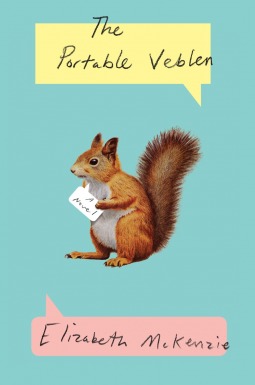
The Portable Veblen is an odd read, and possibly not in the ways you’d expect. Picking it up, I assumed it was some sort of sci-fi or magic realist novel. Was a Veblen some sort of futuristic gun? A translation device? A highly treatable but somewhat embarrassing rash?
In fact, as with so much in this world, it really only serves to highlight my troglodyte-level ignorance. Apparently Veblen is a reference to Thorstein Veblen, a Norwegian socialist and sociologist living in America in the late 1800s. He essentially decried capitalism and proposed an alternative system to Marxism, and it is after this prominent thinker that TPV’s main character, Veblen, is named.
For me, the novel is really about contradictions between people and between families as they try to adjust from being purely individual to being part of a wider group. How do you decide what to compromise on and what to retain? What is an unhealthy hangover from your upbringing and what is a genuinely core part of your identity? Do you have a responsibility to emulate the 19th century philosopher you’re named after? Those sorts of universal questions.
While McKenzie never really answers any of these questions, the exploration in itself is interesting and enjoyable. It helps that she gives Veblen a minor insanity: the belief that she can understand and be understood by squirrels. The squirrels, which sort of act as a symbol for respecting nature as a whole, add a bit of oddness to the novel and twist it into a slightly different genre, in the same way as seeing a hairless cat is totally different to seeing a regular, fuzzed-up one.
The main draw of this novel are the characters. While some are too heightened to be fully believable, for me that’s a plus, because I love that style of characterisation and it lends a lot of humour to the novel.
It sits oddly between the book about philosophy and the book about domestic dynamics. In that way, the book’s genre is a pretty apt reflection of the characters’ tensions. Imagine it was called Freud Family Values, and you’re getting someone towards it. And if that sounds fun to you, definitely give this a shot.
--
This is my ninth book review of 100 to raise money for Refuge, the domestic abuse charity. If you liked this review, or just want to help out, please donate on the link below!
Comments
Post a Comment